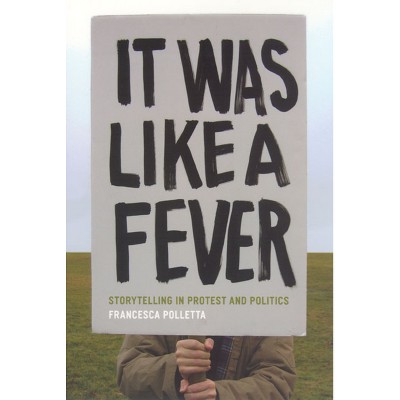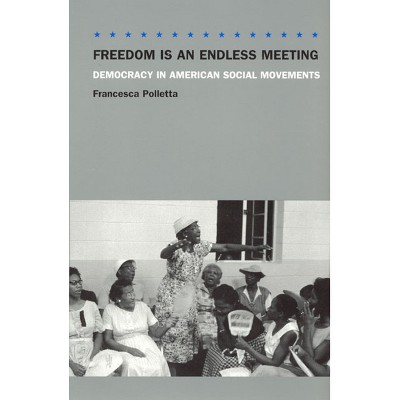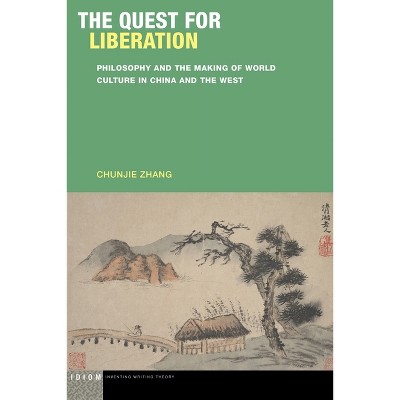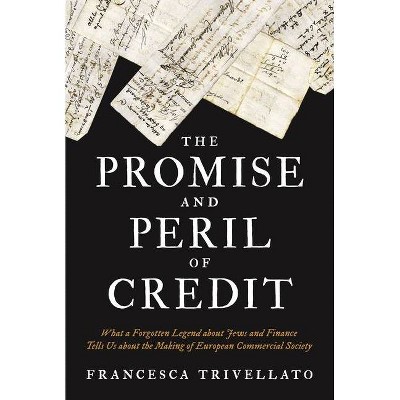Sponsored

Inventing the Ties That Bind - by Francesca Polletta (Hardcover)
$115.00
In Stock
Eligible for registries and wish lists
Sponsored
About this item
Highlights
- At a time of deep political divisions, leaders have called on ordinary Americans to talk to one another: to share their stories, listen empathetically, and focus on what they have in common, not what makes them different.
- About the Author: Francesca Polletta is professor of sociology at the University of California, Irvine.
- 272 Pages
- Social Science, Sociology
Description
About the Book
"Everyday, we are faced with a host of moral decisions ranging from the most considerate way to share a workspace to what sacrifices we'll make for a higher democratic aim. In Inventing the Ties that Bind, Francesca Polletta shows that we do not solve these dilemmas based on self-interest alone: people making decisions, including ones ranging from the deeply personal to the broadly political, often go against what would clearly seem to be to their personal benefit. Instead, people consider the nature of their ties to one another, and how these help them make sense of their obligations and what to do. At the heart of Polletta's argument is the central role relationships play in our moral lives. But she also shows that these relationships are often imagined. People use relationships as a kind of moral compass, which tells them when pursuing the most advantageous personal outcome shades into exploitation, or whom they are obliged to help, or what it means to treat someone as an equal. Looking to diverse cases ranging from debt settlement agencies to the Freedom Riders of the Civil Rights movement, Polletta argues that when these imagined relationships drive us to act against our own self-interest, they often change the course of our democracy--or hinder our individual growth and well-being. In an era of extreme polarization, Polletta's portrait of how we make sense of our ties to one another is more urgent than ever"--Book Synopsis
At a time of deep political divisions, leaders have called on ordinary Americans to talk to one another: to share their stories, listen empathetically, and focus on what they have in common, not what makes them different. In Inventing the Ties that Bind, Francesca Polletta questions this popular solution for healing our rifts. Talking the way that friends do is not the same as equality, she points out. And initiatives that bring strangers together for friendly dialogue may provide fleeting experiences of intimacy, but do not supply the enduring ties that solidarity requires. But Polletta also studies how Americans cooperate outside such initiatives, in social movements, churches, unions, government, and in their everyday lives. She shows that they often act on behalf of people they see as neighbors, not friends, as allies, not intimates, and people with whom they have an imagined relationship, not a real one. To repair our fractured civic landscape, she argues, we should draw on the rich language of solidarity that Americans already have.Review Quotes
"In Inventing the Ties that Bind, Francesca Polletta, a distinguished contributor the literature on social movements, probes what is needed to build solidarity."-- "Social Forces"
"It is challenging to do justice to Inventing the Ties that Bind because it draws adroitly across such a diversity of cases and lines of argumentation, and accomplishes so much. In addition to the book's major contributions to cultural and political sociology, movement scholars interested in culture in general, and solidarity, story, ritual, and emotions specifically, will find the book offers fresh and compelling insights."-- "Mobilization"
"Imagining the Ties That Bind is a perceptive meditation on the capacities and deceptions of everyday social imaginaries. Polletta has given us a powerful thinking tool to enrich our research with a broader and more piercing sociological imagination."-- "American Journal of Sociology"
"How can strangers be turned into people we feel solidarity with? This is the burning question that distinguished expert of social movements and deliberation Polletta takes on in her remarkable book. She examines evidence from across the social sciences about the relative value of various paths of action, which may include moral norms, self-interest, civility, emotions, rituals, advocacy, self-disclosure, and feel-good exercise. Through rich case studies, she argues against encouraging a culture of superficial intimacy. Instead, the secret sauce for 'solidarity across differences' is building imagined relationships over time through practice and 'relationship schemas.' As a wide-ranging contribution of stunning originality, Inventing the Ties that Bind deserves to have a broad readership from sociology, political science, and beyond."
--Michèle Lamont, Harvard University
"Reading through Inventing the Ties That Bind is like a jaunt through what you thought was a familiar public park or streetscape only to be jolted, over and over again, with a novel, provocative, or hard-hitting insight that makes the contours of the familiar leap into shimmering, breathtaking focus. The book is exciting, timely, ambitious, beautifully written, and is sure to have a broad audience."--Ann Mische, Notre Dame University
"Seeking to transcend today's constricted politics, Inventing the Ties that Bind probes the fundamental nature of identity and solidarity. With original research on cases from early Civil Rights organizing to professionally-curated civic dialogues, Polletta explores how people imagine-and reimagine-their relationships with others different from themselves. Polletta shows how, as social and moral beings, we can draw from existing relationship schemas-as family members, citizens, and friends-to imagine, and enact, more inclusive, just, and equal forms of cooperation and of struggle."
--Ann Swidler, University of California, Berkeley
"With whom do we bond? Social science tells us it is with friends of friends, popular people, and those with whom we share social and organizational affiliations. Fair enough, but there are many exceptions--and when it comes to establishing empathy and social solidarity in complex societies, these exceptions may be more important than the rule. This book is about the exceptions, the ways in which people use analogy to construct relationships across social boundaries, and about why strategic recipes for producing such relationships usually fail to do so. In this subtle and insightful study, Polletta delineates the intimate links between situation, imagination, interaction, and identity, providing signposts for reconstructing community in the face of anomie and polarization."
--Paul DiMaggio, New York University
"This book is timely, original and wonderfully synthetic. While the cultural turn in the study of social movements has been well underway for some time, Polletta's understanding of culture is far more sophisticated than that of many authors who work in this vein. Moreover, she speaks directly to some key debates in our turbulent political times, including how to talk to people across the many divides that fracture our polity."--Wendy Espeland, Northwestern University
About the Author
Francesca Polletta is professor of sociology at the University of California, Irvine. She is the author It Was Like a Fever: Storytelling and Protest Politics and Freedom Is an Endless Meeting: Democracy in American Social Movements, and coeditor of Passionate Politics: Emotions in Social Movements, all published by the University of Chicago Press.Dimensions (Overall): 9.0 Inches (H) x 6.0 Inches (W) x .63 Inches (D)
Weight: 1.13 Pounds
Suggested Age: 22 Years and Up
Number of Pages: 272
Genre: Social Science
Sub-Genre: Sociology
Publisher: University of Chicago Press
Theme: General
Format: Hardcover
Author: Francesca Polletta
Language: English
Street Date: December 11, 2020
TCIN: 1006096902
UPC: 9780226734170
Item Number (DPCI): 247-40-2354
Origin: Made in the USA or Imported
If the item details aren’t accurate or complete, we want to know about it.
Shipping details
Estimated ship dimensions: 0.63 inches length x 6 inches width x 9 inches height
Estimated ship weight: 1.13 pounds
We regret that this item cannot be shipped to PO Boxes.
This item cannot be shipped to the following locations: American Samoa (see also separate entry under AS), Guam (see also separate entry under GU), Northern Mariana Islands, Puerto Rico (see also separate entry under PR), United States Minor Outlying Islands, Virgin Islands, U.S., APO/FPO
Return details
This item can be returned to any Target store or Target.com.
This item must be returned within 90 days of the date it was purchased in store, shipped, delivered by a Shipt shopper, or made ready for pickup.
See the return policy for complete information.
Frequently bought together
Trending Non-Fiction

$15.68
Save $5 when you spend $25 on select books
4.6 out of 5 stars with 244 ratings


Highly rated
$18.28
was $19.58 New lower price
Save $5 when you spend $25 on select books
4.8 out of 5 stars with 23 ratings














